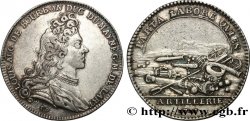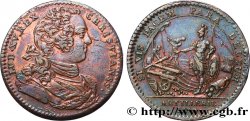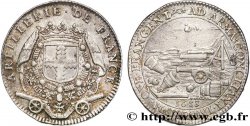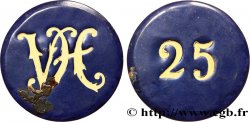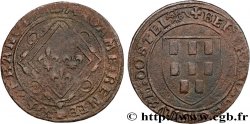fjt_807818 - ARTILLERY Louis-Auguste de Bourbon, duc du Maine 1696
15.00 €(Approx. 17.10$ | 12.90£)
Quantity
Add to your cart

Type : Louis-Auguste de Bourbon, duc du Maine
Date: 1696
Metal : red copper
Diameter : 27 mm
Orientation dies : 6 h.
Weight : 5,50 g.
Edge : lisse
Predigree :
Jeton provenant de la Collection MARINECHE
Obverse
Obverse legend : L. A. DE. BOURBON. D. DU. MAYNE. GRD. ME. DE. L’ARTRIE.
Obverse description : Son buste à droite cuirassé et drapé, avec épaulettes ; sans signature.
Reverse
Reverse legend : REGIT IMPERIIS ET FVLMINE ; À L’EXERGUE : ARTILLERIE.
Reverse description : Trophée militaire avec les armes de France au centre.
Reverse translation : Il dirige l'armée par ses ordres et par sa foudre.
Commentary
Louis-Auguste de Bourbon, duc du Maine est le fils légitimé de Louis XIV et de Madame de Montespan, né à Versailles dans la semi-clandestinité en 1670. Élevé par la veuve de Scarron, il est affligé d’un pied bot mais se révèle très intelligent. Légitimé en 1673 avec son frère le comte de Toulouse et sa sœur, il s’installe à Saint-Germain. En 1681, il reçoit de la grande Mademoiselle la Dombes et Eu et devient gouverneur du Languedoc. Il est marié à Anne-Louise-Bénédicte de Bourbon-Condé en 1692. Bon fils, il fait ses premières armes à Philippsbourg en 1689 et est à Fleurus en 1690 comme maréchal de camp. Il est à Namur, Steinkerque et devient grand maître de l’artillerie en 1694. Très aimé du roi, il reçoit rang après les princes du sang puis, après 1712, l’héritier du trône n’étant qu’un enfant fragile, il est déclaré apte à la succession de la Couronne. Il est aussi chargé par le roi de veiller à l’éducation du futur Louis XV et nommé régent, avec son frère, dans le testament de Louis XIV. Ce dernier est cassé. En 1717, l’éducation du jeune roi lui est retiré ce qui provoque son entrée dans la conspiration de Cellamare et lui vaut d’être arrêté et incarcéré. Il passa le reste de ses jours à Sceaux dans des exercices de piété et mourut en 1736 .







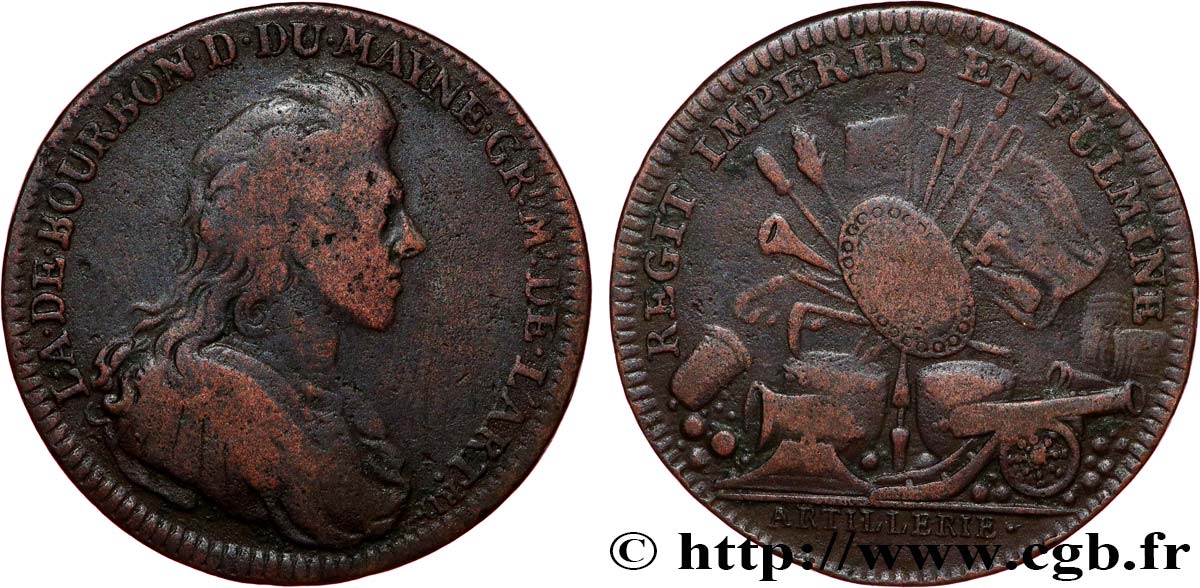
 Report a mistake
Report a mistake Print the page
Print the page Share my selection
Share my selection Ask a question
Ask a question Consign / sell
Consign / sell
 Full data
Full data
